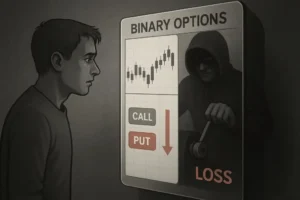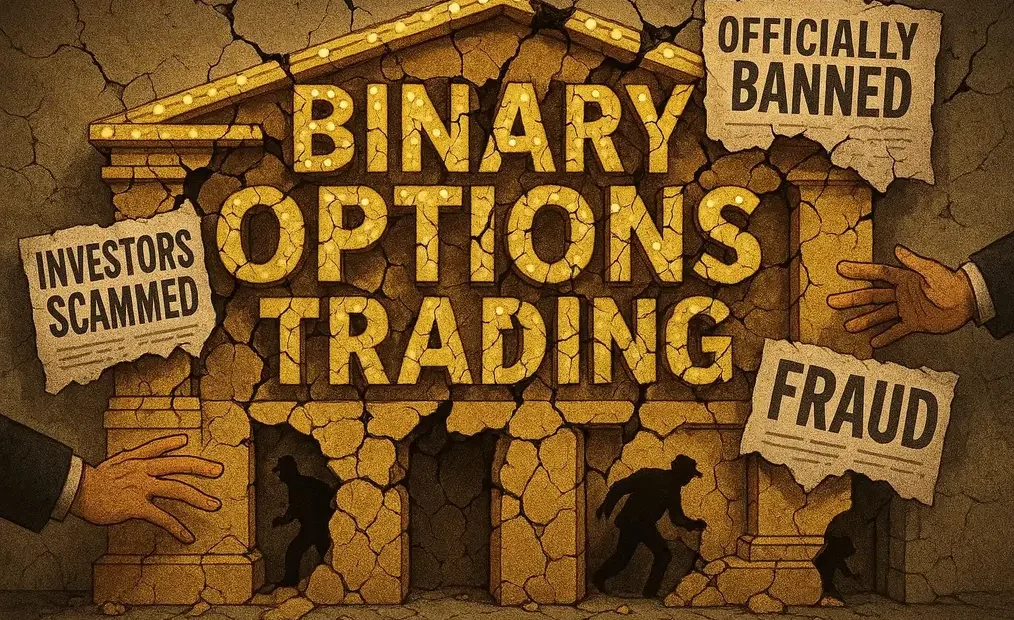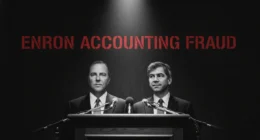The monstrous scale behind a digital mirage
What if your “investment” is just a house of mirrors? That’s exactly how Israel’s binary options fraud swallowed billions and shattered families. In the first blush of the 2010s, hundreds of firms based in Israel ran slick websites promising massive returns in minutes. They targeted vulnerable dreamers across the globe—desperate people chasing quick gains after losing in markets or disasters beyond their control.
As early as 2015–2017, insiders estimated annual revenues of this industry at $10 billion or more worldwide. The scale was grotesque. Yet, most victims never saw a courtroom. And here’s where it gets worse: the system was rigged from the inside.
How the trap worked: gambling disguised as finance
Binary options are simple to understand: you “bet” whether an asset (a stock, forex pair, index) will go up or down in a short period. Win, get a payout. Lose, lose your capital. But in Israel’s version, the game was broken.
These companies owned the platform. They could flip or block your trades, reject your profits—even cancel withdrawals. Some used fake balances, altered timers, or switched your direction mid-trade. The “house” always wins.
They used aggressive cold calls. You’d be coaxed to deposit $500, then $5,000, then $50,000. When you tried to cash out, your “account manager”—the same person who urged you to invest—would stall, claim a tax issue or regulation problem, and then vanish.
Many operations ran via call centers in Tel Aviv, Herzliya, or Ramat Gan. Employees were told: “Leave your conscience at the door.” Some victims lost millions in months. A Hong Kong retiree said she lost $10 million to one firm and now battles illness and debt.

The turning point: exposure, bans, and reluctant enforcement
By 2016, whistleblowers and journalistic exposes blew open this rotten secret. The Times of Israel’s “Wolves of Tel Aviv” series revealed just how normalized the fraud had become. In March 2016, Israel banned domestic sales of binary options; by October 2017, it extended the ban to all foreign clientele.
Still, the networks didn’t vanish—they just shifted. Many operators migrated offshore or pivoted toward crypto scams, forex fraud, or Ponzi schemes. In 2024, a U.S. court ordered three Israelis and their offshore firms to pay $451.6 million over a binary options fraud case. In 2024, the U.S. CFTC won a final judgment that Israeli-linked defendants were liable for rigging binary trades and misleading clients.
Inside Israel, enforcement was sluggish. Prosecutors arrested a few executives, like Lee Elbaz, a CEO convicted in 2019 and sentenced to 22 years in a U.S. prison. Another case: Yukom Communications, once a giant in this space, had several employees arrested years later. Even so, many high-level perpetrators remained free or operating under new aliases.
The U.S. SEC has charged platform providers like SpotOption (based in Ramat Gan) with defrauding U.S. investors by manipulating trades. SpotOption allegedly powered hundreds of scam brands, rigging trades while taking 12.5% revenue cuts.
Victim stories: not just numbers
Consider Maria (name changed). She was a quiet office worker in Spain. The pitch started small: “Just $500 to test our algorithm.” She believed it. She watched her phantom profits grow. Encouraged, she deposited $20,000, then $50,000. Then came the excuses when she requested withdrawal. She encountered “tax codes” and “IT glitches.” And one morning, the website vanished. Her life savings were gone.
Or consider Ahmed from Egypt. He lost his business capital—money for rent, school, emergencies—because he believed the glossy promise: “Double in two hours.” He spiraled into depression and debt. Friends and family couldn’t understand how he had risked so much. The shame isolates victims. Many don’t report.
These are not anomalies; they are repeated tragedies around the world.

Why justice has lagged
You might ask: With such a scale, why haven’t the authorities shut this down fully? Several dark factors:
-
Jurisdictional gaps
Most victims are abroad. Israeli regulators had limited reach into scams targeting foreign countries. The Israel Securities Authority initially couldn’t tackle offerings abroad. -
Stonewalling and noncooperation
Foreign law enforcement reports Israel often stalls sharing data, delays extraditions, or ignores requests. -
Evolving scheme tactics
When binary options became taboo, fraudsters morphed into crypto scams, “predictive trading,” and even DeFi ponzis. They used new technology to stay ahead of regulators. -
Low arrest rates
Despite the billions stolen, only a handful of top operators have been convicted. Many ran through shell companies. Victims often can’t trace ownership. -
Regulatory capture and lobby pressure
The industry had connections in business and politics. Some bills were weakened. Some regulators changed roles into advisory jobs later.
Warning signs you’re being scammed
-
Promises of ultra-fast, guaranteed returns
-
No regulatory license or claims of obscure offshore licensing
-
Aggressive follow-ups or cold calls
-
Refusal to let you withdraw funds
-
Platforms where your balance is changed unexpectedly
-
Requests for extra “taxes” or “transfer fees” before withdrawal
-
Use of crypto as the only way to deposit or withdraw
If you see more than two, take it as a red alert.

What can victims do now?
-
Report to your country’s financial regulator and law enforcement
-
Save all communications, screenshots, emails, and voice records
-
Seek recovery firms—but vet them (some are scams)
-
Join victim support groups worldwide
-
Pressure your government to demand transparency and cooperation
Final verdict: the fraud lives on
Israel’s binary options fraud was not a glitch. It was a systemic, multi-billion-dollar industry built on deceit. It threatened global victims, rewrote the rules of financial crime, and taught a brutal lesson: digital promises can hide dark machinery.
The exposures and bans cracked the shell. But the beast shifted its form—into crypto rug pulls, phantom investments, and Ponzi networks. The fight is far from over. If you see the signs—turn away and warn others. Because in this story, the house always wins, until justice catches up.
References
[1] Times of Israel: Israel arrests 6 men wanted by the US over alleged $148M binary options fraud.
[2] Times of Israel: German prosecutors targeting online fraud with Israel links
[3] Times of Israel: The wolves of Tel Aviv — Israel’s vast binary options scam exposed
[4] Times of Israel & SEC: SEC charges SpotOption and top executives
[5] SEC press release: SpotOption violating anti-fraud rules
[6] U.S. DOJ: Former Israeli CEO sentenced for international binary options fraud
[7] JTA / Times of Israel: Israel bans binary options, notes $10B scale
[8] Bloomberg: Israeli/offshore firms ordered to pay $451.6M in binary fraud case
[9] CFTC order vs Israeli defendants in off-exchange binary fraud
[10] U.S. DOJ: Lee Elbaz guilty in $145M scheme
Related reading (suggested)
Forex Trading Scams: Why 95% of Forex Courses Are Fraudulent
ICO Fraud Timeline: 2017’s Biggest Token Scam Disasters









